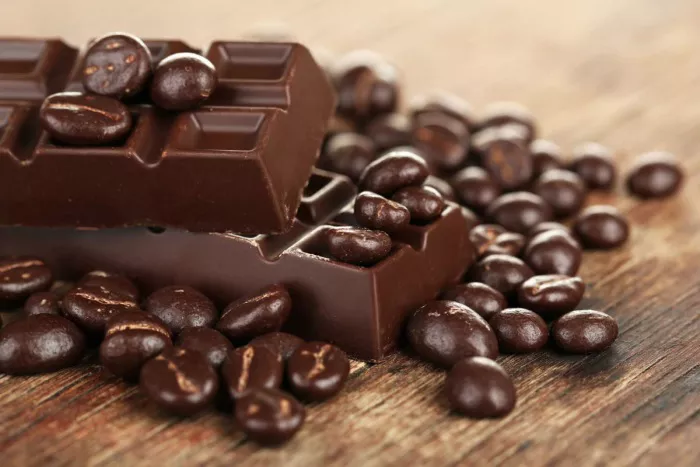When it comes to optimizing your workouts and achieving your fitness goals, what you eat before hitting the gym can make a world of difference. Pre-workout nutrition plays a vital role in providing your body with the necessary energy, nutrients, and hydration to perform at its best. To help you make informed choices, this professional article will guide you through the essentials of pre-workout nutrition. Discover the right foods and strategies to eat before your workout for enhanced performance, endurance, and results.
The Importance of Pre-Workout Nutrition
To understand why pre-workout nutrition is crucial, let’s delve into the science behind it. When you eat before your workout, you provide your body with the fuel it needs to perform optimally. The food you consume is broken down into glucose, which is your body’s primary energy source. During exercise, your muscles require this energy to contract and perform work. Without adequate nutrition, your body may rely on stored glycogen, leading to premature fatigue and decreased performance.
Moreover, pre-workout nutrition influences various physiological processes, including:
Muscle Protein Synthesis: Eating before a workout helps stimulate muscle protein synthesis, which is essential for muscle growth and repair.
Hormonal Balance: Proper nutrition can affect the balance of hormones like insulin, cortisol, and growth hormone, which play a role in muscle development and fat loss.
Hydration: Staying adequately hydrated is key to preventing muscle cramps and maintaining optimal body temperature during exercise.
Mental Focus: Pre-workout meals can improve cognitive function, enhancing your focus, concentration, and motivation during a workout.
With all these factors in mind, let’s explore what you should eat before a workout to harness the full benefits of your training.
Balanced Pre-Workout Meals
Creating a balanced pre-workout meal is all about providing your body with the right mix of macronutrients (carbohydrates, proteins, and fats) and micronutrients (vitamins and minerals). Here’s a breakdown of how each component contributes to your pre-workout nutrition:
Carbohydrates
Carbohydrates are your body’s primary energy source during exercise. They’re essential for maintaining energy levels, especially during high-intensity workouts. Complex carbohydrates, like whole grains and starchy vegetables, provide a steady release of energy. Fast-digesting carbohydrates, such as fruits, can offer a quick energy boost.
Ideal sources of carbohydrates to eat before your workout include:
Whole grains (oats, brown rice, quinoa)
Starchy vegetables (sweet potatoes, butternut squash)
Fruits (bananas, berries)
Legumes (lentils, chickpeas)
Proteins
Protein is essential for muscle repair and growth. Consuming protein before a workout can help kickstart muscle protein synthesis and reduce muscle damage during exercise. While you don’t need a large amount of protein pre-workout, a moderate serving can be beneficial.
Good sources of pre-workout protein include:
Lean meats (chicken, turkey)
Fish (salmon, tuna)
Plant-based options (tofu, tempeh)
Dairy or dairy alternatives (Greek yogurt, almond yogurt)
Fats
Healthy fat sources to consider for your pre-workout meal include:
Nuts (almonds, walnuts)
Seeds (chia seeds, flaxseeds)
Avocado
Olive oil (used in cooking)
Timing Your Pre-Workout Meal
The timing of your pre-workout meal is a critical aspect of maximizing your performance. Eating too close to your workout can lead to digestive discomfort while consuming a meal too far in advance may leave you feeling hungry and low on energy. The ideal timing of your pre-workout meal depends on your individual preferences and needs.
Here are some general guidelines to help you plan your pre-workout nutrition based on when you plan to exercise:
2-3 Hours Before A balanced meal containing carbohydrates, proteins, and fats is best if you have the luxury of eating a few hours before your workout. This allows for proper digestion and provides a steady source of energy during exercise.
1-2 Hours Before: If you have limited time, opt for a smaller, balanced meal with an emphasis on carbohydrates and some protein. This ensures that you have enough energy for your workout without the risk of digestive discomfort.
30 Minutes to 1 Hour Before: A light snack rich in carbohydrates, like a piece of fruit or a small serving of yogurt, can be beneficial if you’re working out soon after eating. These snacks are easily digestible and provide a quick energy boost.
Less Than 30 Minutes Before: If you have very little time before your workout, focus on easily digestible carbohydrates. A piece of fruit, an energy gel, or a sports drink can help provide a quick source of energy.
Conclusion
In the world of fitness and exercise, your pre-workout nutrition is a fundamental component of your success. What you eat before your workout can significantly impact your energy levels, performance, and overall results. By incorporating balanced meals that include carbohydrates, proteins, healthy fats, vitamins, and minerals, you can set yourself up for success.






















